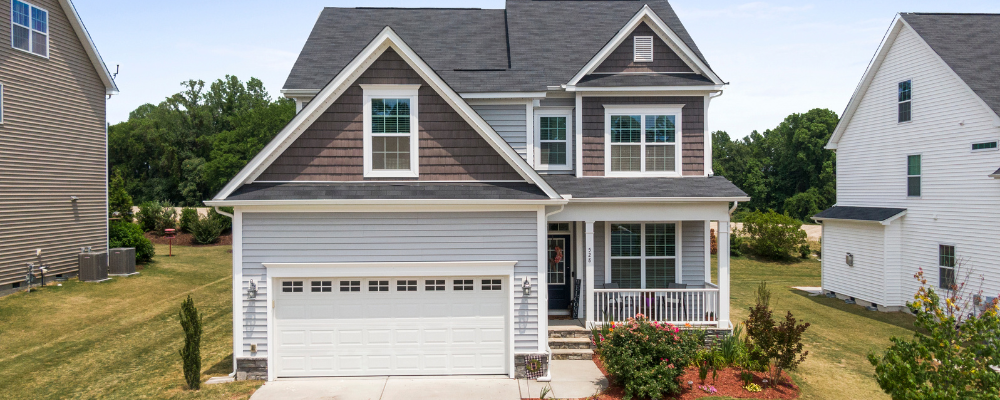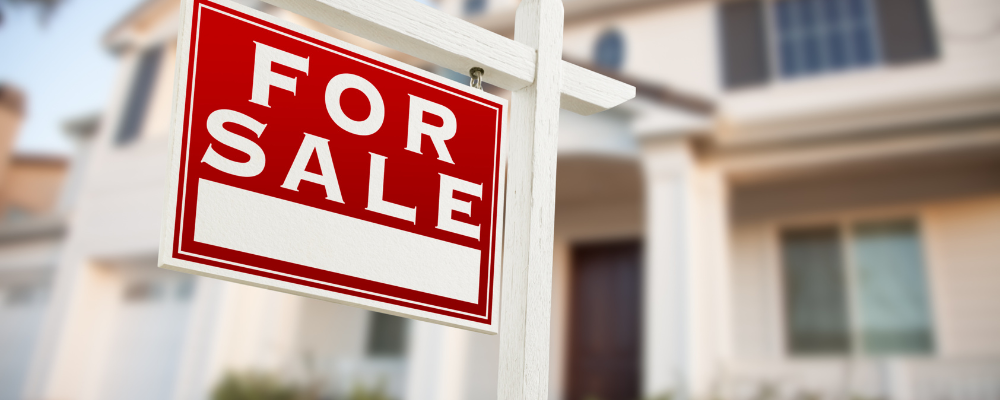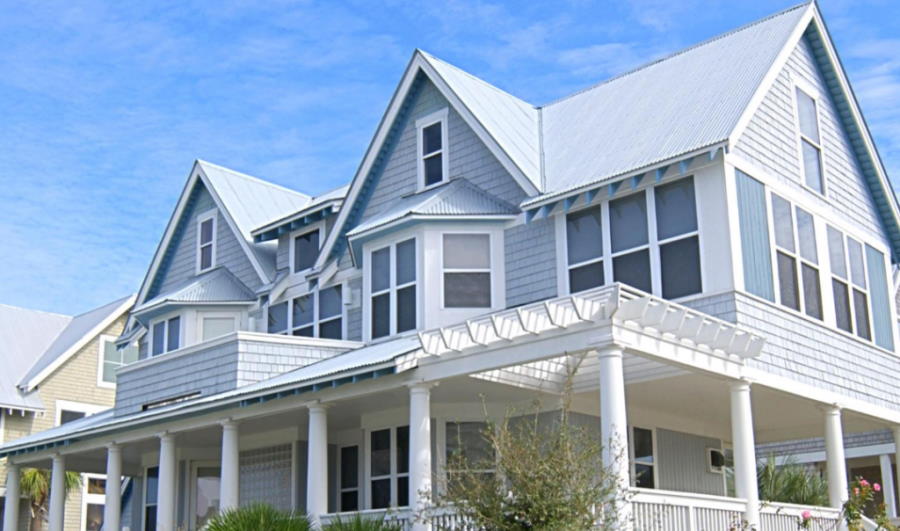Should You Cash Out Refinance To Buy A Second Home?
Using the equity from your current home to make a down payment on your second home can be a great financial solution. To figure out if a cash out refinance to buy second home is the right strategy for you, there are a few things to consider. Ask yourself these questions:
- Can you afford a higher monthly payment?
A cash-out refinance will replace your current mortgage and the balance will be larger, so your monthly repayment will be more. In addition to this, the home equity you are using will be collateral for the loan and this means that if you default on the loan, you could risk losing it.
- Do you have enough equity in your home?
The eligibility criteria for a cash out refinance loan will be based on the amount of equity you have in your current home.
- How fast do you need the funds?
A cash out refinance isn’t necessarily the fastest way to access your home equity. Sometimes a home equity loan or HELOC (Home Equity Line of Credit) are faster ways to access your home equity loans.
- Are you wanting to buy and then sell or refinance one of your homes?
A bridge loan may be a better option for you, if your goal is to buy and then sell or refinance one of your homes because a cash out refinance is long-term financial solution.
- Do you want to consolidate your loans?
A cash out refi is a great way to purchase an investment property without needing two loans. Your existing loan will be replaced, and this consolidates your loans into one.
Let’s take a closer look at how cash out refinancing works, to help you decide if a cash out refinance to buy second home is the best financial solution for your needs.
Key Points
How Cash Out Refinancing Works
Cash-out refinancing is a popular financial strategy that allows homeowners to tap into the equity they’ve built up in their property. Essentially, it involves replacing your existing mortgage with a new, larger one, and receiving the difference between the two in cash. This cash can be used for various purposes, such as investing in a new property, making home improvements, or consolidating higher-interest debt.
When you opt for a cash-out refinance, you take out a new mortgage that is higher than your current loan balance. The extra amount—representing the equity you’ve built up over time—is provided to you as a lump sum of cash. For example, if your home is valued at $300,000 and your remaining mortgage balance is $150,000, you could refinance for $200,000. This would allow you to access $50,000 in cash.

How To Cash Out Refinance To Buy A Second Home
If you’ve built up equity in your current home and want to use it to help finance a second investment property, cash-out refinancing could be an effective strategy. Follow this step-by-step guide to understand how the process works and how to get started.
Step 1: Assess Your Home Equity
The first step is to determine if you have enough equity in your home to support the purchase of a second investment property. Equity is the difference between your home’s current market value and your remaining mortgage balance. Typically, lenders allow you to borrow up to 80% of your home’s value, but this doesn’t mean you can access the entire value of the property.
To calculate your Loan-to-Value (LTV) ratio, divide your current loan balance by the appraised value of your home. Lenders use this ratio to decide whether to approve your loan. For example, if your remaining mortgage balance is $140,000 and your home appraises at $200,000, your LTV would be 70%.
Step 2: Check If You Qualify
Next, review the lender’s qualification criteria to ensure you meet the requirements. Most lenders expect a credit score of at least 620, though higher scores increase your chances of approval and better terms. Lenders will also look at your Debt To Income ratio (DTI), which should generally be below 43%. The lower your debt to income, the more attractive you are to lenders, potentially leading to better interest rates.
In addition to verifying your credit score and debt to income, lenders will require proof of income, employment verification, and a new appraisal to confirm the value of your property. They may also inquire about your cash reserves to ensure you have enough savings to cover your mortgage payments in case of an unexpected loss of income.
Step 3: Find the Right Lender
It’s important to shop around and compare lenders when considering a cash-out refinance. Different lenders have varying terms, fees, and qualification requirements, so take your time to find one that fits your financial goals. Key factors to consider include interest rates, closing costs, and LTV limits. By comparing these aspects, you’ll have a clearer idea of which lender offers the most affordable and suitable cash-out refinance option for your situation.
Step 4: Gather the Necessary Documents
To get pre-approved for a cash-out refinance, you’ll need to provide several documents, including W-2s, pay stubs, bank statements, and previous tax returns. Additionally, lenders will want information on your current mortgage and other relevant financial documents. Having these prepared in advance will help streamline the process.
Step 5: Apply for the Loan
Once you’ve chosen a lender and gathered all the required documents, it’s time to apply for the loan. The application process is similar to what you went through when obtaining your first mortgage. The lender will review your financial information and order an appraisal to confirm your home’s value. This process can take anywhere from 6 to 8 weeks, as cash-out refinances generally don’t have the same urgency as a home purchase.
Step 6: Close the Loan
After your application is processed, the lender will either approve or reject the loan. If approved, the closing process will be similar to your original mortgage. You’ll sign the necessary documents and pay closing costs, which may include origination fees, appraisal fees, and other charges.
Once the loan is closed, you’ll receive the cash difference between your old mortgage and the new loan. This lump sum can be used as a down payment on your second investment property or for other related expenses.
Key Benefits Of A Cash Out Refinance Loan

Benefit 1: Debt Consolidation
Cash-out refinancing can be a powerful strategy for consolidating high-interest debts, such as credit card balances or personal loans. By rolling these debts into your mortgage, you can take advantage of a lower interest rate and combine multiple mortgage payments into one simplified monthly mortgage payment. This not only helps reduce financial stress but could save you money on interest over time.
Benefit 2: Switch Mortgage Types
Cash-out refinancing provides the opportunity to switch from your current mortgage type—whether it’s an adjustable-rate mortgage (ARM) or a fixed-rate mortgage—to a new type that better suits your long-term financial goals. Switching to a more stable or advantageous mortgage structure during a cash out refi can improve your financial position over time.
Benefit 3: Access to Cash
One of the key benefits of a cash out refinance loan is the ability to tap into the equity you’ve built in your home. This allows you to access a lump sum of cash that can be used for home renovations, a down payment on a second property, or other significant expenses. It’s a practical way to unlock the value in your home without having to sell it.
Benefit 4: Potential for Lower Interest Rates
By consolidating your debt into a cash out refinance loan, you might secure a lower interest rate than your existing mortgage or high-interest debts. Refinancing at a lower rate not only gives you access to cash but can also reduce your monthly payments and result in significant savings over the life of the loan.
Benefit 5: Tax Advantages
Interest paid on cash out refinance loans may be tax-deductible, particularly if the funds are used for home improvements. This could provide a financial boost by reducing your tax burden. Always consult a tax professional to determine how much of your refinance interest qualifies for deductions based on how the funds are used.
Benefit 6: Long-Term Financial Flexibility
A cash out refinance offers you the flexibility to access the equity in your home without the need to sell it. This can provide the liquidity needed to make significant purchases, fund investment property purchases, or manage major expenses while maintaining ownership of your property. It’s a financial tool that offers both immediate cash and long-term investment opportunities.
Biggest Risks When Using Cash Out Refinance Loans

Risk 1: Current Mortgage Rates
Mortgage rates can significantly impact the cost of a cash-out refinance, and timing is key. If current rates are higher than what you’re paying on your existing loan, you may end up with a larger monthly payment, even if you’re tapping into your home equity. It’s important to carefully evaluate market conditions before refinancing, as waiting for more favorable rates could save you money in the long run.
Risk 2: Closing Costs and Fees
Just like with your original mortgage, cash out refinance loans come with closing costs, which can add up. These include origination fees, appraisal fees, and other administrative charges. The total cost of these fees can be substantial, so it’s essential to factor them into your decision and ensure the benefits of the refinance outweigh these upfront expenses.
Risk 3: Home as Collateral
One of the biggest risks with cash out refinancing is that your home serves as collateral for the new loan. This means that if you’re unable to make the payments, you risk losing your home to foreclosure. Given the high stakes, it’s critical to ensure you can comfortably manage the new loan payments, especially if you’re using the funds to consolidate other debts, which could lead to a higher overall payment.
Risk 4: Larger Loan Amount
A cash out refinance increases your overall debt, regardless of how much of your original mortgage you’ve already paid off. Even if you secure better interest rates or more favorable loan terms, you’re still taking on more debt than you originally had. It’s important to be mindful of this and weigh the long-term financial impact of carrying a larger loan.
Other Ways To Tap Into Your Home Equity
Alternative Method 1: Home Equity Loan
A home equity loan is another option for financing a second home by leveraging the equity you’ve built in your current property. Like a cash-out refinance, a home equity loan provides a lump sum of money upfront. You then repay the loan through fixed monthly payments, usually at a lower interest rate compared to many other consumer lending options. This makes it an attractive choice for homeowners who prefer the stability of a fixed-rate loan with predictable payments.
Alternative Method 2: HELOC
A home equity line of credit (HELOC) offers a flexible financing option that operates similarly to a credit card. With a HELOC, you can borrow as much or as little as you need, repay the borrowed amount, and borrow again during the draw period. This draw period typically lasts several years, giving you ongoing access to funds as needed. Once the draw period ends, you’ll repay the remaining balance through regular installments, but the revolving nature of a HELOC makes it ideal for managing variable expenses, such as home improvements or unexpected costs.
Alternative Method 3: Bridge Loan
A bridge loan is designed for short-term financing, allowing you to transition equity from one home to another, such as when purchasing a second property before selling your current one. The main advantage of a bridge loan is its temporary nature, often lasting only a few months without requiring monthly payments. However, bridge loans typically come with higher interest rates—often two percentage points above standard mortgage rates—and substantial upfront fees. While they provide quick access to cash, it’s important to weigh the higher costs against the convenience of immediate liquidity.




